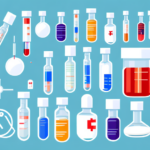Introduction to Medical Courier Certification
Medical couriers play a vital role in the healthcare industry by ensuring the safe and timely transportation of sensitive medical materials. Obtaining certification as a medical courier not only enhances your professional credentials but also opens up a plethora of career opportunities in healthcare and logistics.
The Role of a Medical Courier
A medical courier is responsible for transporting a variety of healthcare-related materials, including:
- Biological specimens and laboratory samples
- Medical records and patient data
- Pharmaceuticals and blood products
- Medical equipment and supplies
Medical couriers must adhere to strict regulations to maintain the integrity and confidentiality of the materials they handle. This includes compliance with HIPAA regulations for patient information and OSHA standards for safety.
Effective communication with healthcare professionals and a strong understanding of medical terminology are essential for ensuring accurate and prompt deliveries.
Importance and Benefits of Certification
Certification as a medical courier is critical for several reasons:
- Professional Credibility: Demonstrates your expertise and commitment to the role.
- Competitive Advantage: Enhances your employability in a growing job market.
- Safety and Compliance: Ensures adherence to industry standards, reducing risks of mishandling or contamination.
- Career Advancement: Opens doors to higher positions and specialized roles within the industry.
According to the U.S. Bureau of Labor Statistics, the demand for medical delivery drivers is expected to grow by 6% from 2021 to 2031, highlighting the increasing need for qualified professionals in this field.
Types and Eligibility of Certifications
Types of Certifications
There are various certifications available for medical couriers, tailored to different aspects of the role:
- General Medical Courier Certification: Covers basic knowledge and skills required for all medical courier roles.
- Hazardous Materials Certification: Required for transporting dangerous goods, ensuring compliance with CDC and EPA regulations.
- Controlled Substances Certification: Necessary for handling and transporting medications regulated under the Drug Enforcement Administration (DEA).
- HIPAA Compliance Training: Ensures protection of patient information during transit.
Eligibility Criteria
Eligibility requirements for medical courier certification vary by program but typically include:
- A minimum of six months to one year of relevant experience
- A valid driver's license with a clean driving record
- Completion of a certified training program
- Passing a written certification exam
For instance, the Healthcare Distribution Alliance (HDA) offers a certification program that requires candidates to have a high school diploma or equivalent, along with specified work experience and training.
Preparing for and Maintaining Certification
Preparing for the Certification Exam
Success in certification exams can be achieved through diligent preparation:
- Create a Study Schedule: Allocate specific times for studying to ensure comprehensive coverage of all topics.
- Join Study Groups: Collaborate with peers to enhance understanding and retention of material.
- Utilize Practice Exams: Familiarize yourself with the exam format and identify areas needing improvement.
- Maintain Physical and Mental Health: Balanced nutrition, regular exercise, and adequate sleep can improve cognitive function.
Maintaining Certification
To maintain certification, medical couriers must engage in ongoing professional development:
- Attend industry conferences and workshops
- Complete continuing education courses
- Stay updated on the latest healthcare regulations and transportation technologies
- Renew certifications as required by the certifying body
Continuous learning ensures that couriers remain proficient in best practices and compliant with evolving industry standards.
Cost and Time Investment
The investment required to become a certified medical courier can vary based on the certification program and individual circumstances:
- Exam and Material Fees: Typically range from $200 to $500
- Training Programs: Can cost between $500 and $1,500, depending on the provider and course length
- Time Commitment: Preparation may take several weeks to months, depending on prior experience and study pace
- Employer Assistance: Some organizations offer tuition reimbursement or cover certification costs as part of employee benefits
Investing in certification not only enhances your skill set but also offers a significant return on investment through better job prospects and higher earning potential.
Overcoming Challenges as a Certified Medical Courier
Common Challenges
Medical couriers face several challenges, including:
- Adhering to Strict Regulations: Compliance with healthcare and transportation laws is mandatory.
- Managing Time-Sensitive Deliveries: Ensuring timely arrival of critical materials can be stressful.
- Handling Emergency Situations: Being prepared to act swiftly during unforeseen events.
- Maintaining Material Integrity: Ensuring that sensitive items remain uncontaminated and functional.
How Certification Helps
Certification equips medical couriers with the knowledge and skills to effectively handle these challenges:
- Regulatory Compliance: Training covers all necessary laws and guidelines, reducing the risk of violations.
- Efficient Time Management: Strategies for optimizing routes and managing schedules ensure timely deliveries.
- Emergency Preparedness: Certified couriers are trained to respond appropriately to unexpected situations.
- Proper Handling Techniques: Ensures that all materials are transported safely and remain in optimal condition.
By overcoming these challenges, certified medical couriers contribute significantly to the efficiency and reliability of the healthcare system.
Conclusion
Becoming a certified medical courier is a commendable step towards a rewarding career in the healthcare industry. Certification not only validates your expertise but also enhances job prospects, ensures compliance with critical regulations, and prepares you to handle the challenges inherent in this vital role. By investing in your professional development, you can make a meaningful impact on healthcare delivery and advance your career in this essential field.






















